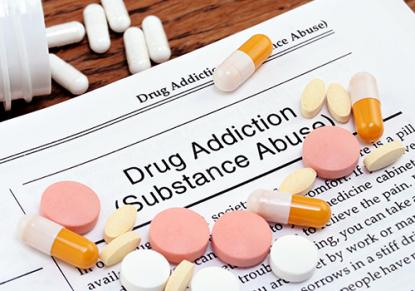

About Morphine Detox
Morphine detox is becoming a more prevalent problem across the United States in the past few decades. Morphine is highly addictive, even when taken under a doctor’s supervision, and more so when taken recreationally. Working within the reward center in the brain, the pleasurable sensations when taking morphine can push individuals into morphine dependency. Once individuals have developed a tolerance for morphine, their need for the drug in higher doses, or frequency, can often push them into full-blown morphine addiction. There are some indicators when morphine dependency becomes a narcotic addiction. As an individual attempt to taper off the morphine, their bodies will begin to experience negative sensations such as sweating, headaches, and anxiety.
When morphine dependency has occurred, the individual’s body will begin to show signs of withdrawal within a few hours of their last dose. Morphine detox can be a very uncomfortable process, and many attempts to detox alone are abandoned quickly. It is important to seek professional morphine detox at an inpatient detox center in Huntington Beach. Those morphine addicts who choose medical detox have a significantly higher success rate. These morphine detox centers provide all the physical, emotional, and psychological support that is needed. With intake steps are taken to help clients gain physical stability first, and then treat all the other components of drug addiction.
Morphine Addiction Facts
What many do not understand about morphine addiction is that morphine is so addictive that it often takes only a short amount of time for users to become consumed with finding their next high. Morphine is a fast-onset opiate drug that recalibrates the central nervous system with an influx of chemicals, which will almost always lead to a physical dependence. Morphine detox symptoms can begin to cause issues within hours of the last time used and are compared to flu-like illnesses in the beginning phases. Morphine withdrawal symptoms are typically flu-like and cause the user both physical and psychological distress. The symptoms and duration of withdrawal are different for each person.
Morphine Treatment Programs.
Morphine Detox Treatment
The detoxification from morphine is difficult, and is best handled in a skilled detox center near you. The ability for medical supervision can avoid unexpected opiate withdrawal symptoms and prevent dangerous withdrawal symptoms. Inpatient detox programs can be residential, like Coastline Behavioral Health in Huntington Beach or an inpatient clinic. When morphine addicts seeking treatment for addiction choose to check themselves into addiction detox centers, they can relax knowing that they will be looked after physically and emotionally.
Morphine detox can be a sudden, cold-turkey experience, supported by medications for detox, or it can be handled a little more gently. Stepping down dosages slowly while providing medical support can help clients anxious about withdrawal symptoms. Quite often, drugs like Methadone can be administered to help clients deal with the discomfort of opiate detox.
Morphine Detox Symptoms
The symptoms of morphine detox can overwhelm clients quickly if these symptoms are not managed correctly. Often, the fear of feeling pain or discomfort can cause patients anxiety. Depending on the client’s length of opiate addiction and the amount consumed on a daily basis, each individual will weather the detoxification process differently. It is true that morphine addicts who have developed a dangerous level of drug addiction will often display more severe and debilitating symptoms. Common morphine detox symptoms include the following:
- Running nose and tearing eyes
- Nausea and vomiting
- Stomach pain and diarrhea
- Fevers and muscle aches
- Sweating and chills
- Increased heart rate
- High blood pressure
- Agitation and restlessness
- Anxiety and irritability
- Insomnia and depression
About Morphine Withdrawal
Morphine is a medication used to treat moderate to severe pain. It is in a class of drugs that are referred to as opioid pain relievers. Opiates are also called narcotics. Doctors prescribe morphine and the drug is extremely addictive. Anyone who is taking this drug is at risk of becoming addicted. Even when used as directed, a patient can still suffer from morphine addiction in as little as two weeks. Such an addiction can get out of hand quickly, and in extreme cases, can lead to death. Morphine is a depressant and this means that withdrawal from the drug can bring about many excruciating withdrawal symptoms. Withdrawal from morphine addiction can be split into three phases.
Need Group Therapy?
Phase One
You’ll experience the first phase about 12 to 30 hours after your last morphine dose. As your morphine addiction has developed, your body has become accustomed to getting the drug and experiencing its effects. Phase one will last about five days or a little longer. You will begin to feel a little better once you head into phase two. The sudden absence of morphine means you are going to experience very uncomfortable physical symptoms, such as:
- Insomnia
- Depression
- Diarrhea
- Nausea
- Cramps
- Vomiting
Phase Two
You’ll experience the first phase about 12 to 30 hours after your last morphine dose. As your morphine addiction has developed, your body has become accustomed to getting the drug and experiencing its effects. Phase one will last about five days or a little longer. You will begin to feel a little better once you head into phase two. The sudden absence of morphine means you are going to experience very uncomfortable physical symptoms, such as:
- Chills
- Leg Cramps
- Restless Leg Syndrome
- Chills
- Dilated Pupils
- Sweating
Phase Three
As you head into phase three, you need to be aware of your addiction and the withdrawal symptoms you are experiencing. You can expect some physical discomfort during this phase. However, your withdrawal symptoms during phase three are more psychological than physical. This is the phase where many begin to have trouble because the cravings are really strong. This puts you at a great risk of sliding backward with your progress. This is a critical time because it is during phase three that you will either break free from the morphine addiction and the detox symptoms or fall back into addiction. During this phase, you can expect to experience the following:
- Anxiety
- Insomnia
- Restlessness
Morphine Withdrawal Drugs
Because morphine addiction has such a strong hold on those who suffer from it, it is crucial to seek professional treatment. Doctors often prescribe the following medications to ease the symptoms of withdrawal:
- Methadone has the same effect as morphine but at a much lower intensity. Dosage is decreased gradually and allows the patient to transition instead of going cold turkey.
- Buprenorphine is used to hasten detox from morphine addiction and can be used long-term.
- Clonidine works to lessen the withdrawal symptoms that can make it so difficult to break free from morphine addiction.
- Naltrexone helps people in the third phase of withdrawal by helping them avoid relapse.
Addiction can happen to anyone. Once a morphine addiction takes over, it is best to seek professional treatment in a closely monitored clinical environment. Healthcare professionals can monitor withdrawal symptoms and ensure such symptoms are not too uncomfortable or overwhelming for the patient.
